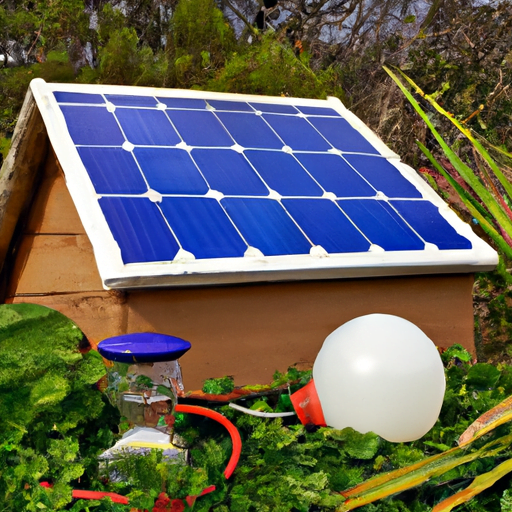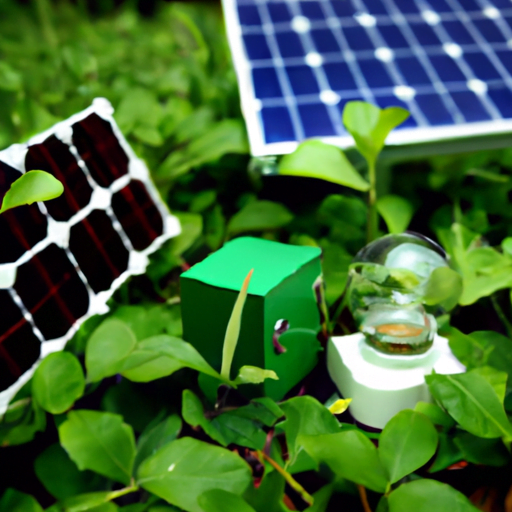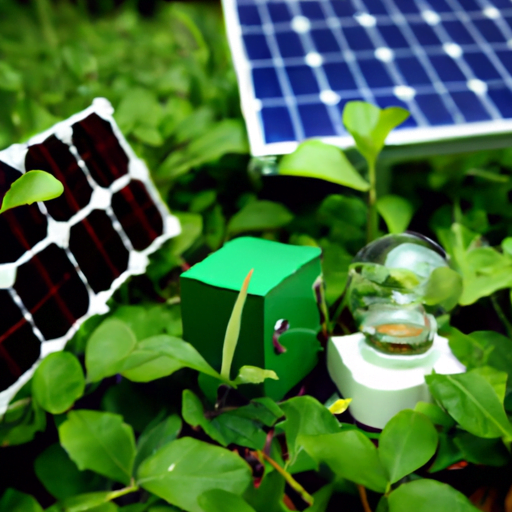Do you ever wonder how people are able to live completely off the grid? I mean, no electricity, no running water, just relying on their own resources to survive. It’s a pretty fascinating concept, isn’t it? Well, in this article, I’m going to share with you 10 tips for living off the grid. Whether you’re considering a more sustainable lifestyle or just curious about this alternative way of living, you’re in for some interesting insights.
Living off the grid essentially means being self-sufficient and not relying on public utilities. It’s all about embracing a simpler and more sustainable way of life. From generating your own electricity through solar panels or wind turbines to growing your own food and relying on rainwater harvesting, there are many aspects to consider when it comes to living off the grid. But don’t worry, I’ll break it down for you in this article and provide you with practical tips to get you started.
One important aspect of living off the grid is finding the right location. Whether it’s a remote piece of land or a rural area with like-minded individuals, the location you choose can greatly impact your off-grid experience. Additionally, you’ll need to invest in renewable energy sources to power your home and meet your basic needs. Whether it’s solar panels, wind turbines, or a combination of different systems, these energy sources will be the backbone of your off-grid lifestyle.
Another key aspect of living off the grid is becoming self-sufficient in terms of food production. This means growing your own fruits and vegetables, raising animals for dairy and meat, and even learning how to preserve food for the long term. And of course, when you’re living off the grid, you’ll need to find alternative water sources. Rainwater harvesting, well drilling, or using natural water sources are all viable options to ensure you have access to clean water for drinking, cooking, and other daily activities.
Living off the grid may require some adjustments and learning new skills, but it can also be incredibly rewarding. So, if you’re curious about this lifestyle or considering making the leap yourself, stick around for the rest of the article where we’ll dive deeper into these 10 tips for living off the grid. Whether you’re looking for ways to reduce your environmental impact or just want to disconnect and live a simpler life, living off the grid might just be the path for you. Living off the grid refers to the lifestyle of living without reliance on public utilities and services, such as electricity, water supply, and sewage systems. It involves generating your own power, managing your own water and waste, growing your own food, and building a sustainable shelter. Living off the grid requires self-sufficiency and the ability to rely on natural resources and sustainable practices. In this article, we will provide you with 10 tips for living off the grid and help you understand the concept, its benefits, and challenges.

Understanding the Concept
Living off the grid means disconnecting from the traditional grid infrastructure and relying on alternative sources of power, water, and food. It allows you to have independence and reduce your impact on the environment. By living off the grid, you become more self-reliant and self-sustainable.
Reasons for Choosing to Live Off the Grid
There are various reasons why people choose to live off the grid. It can be driven by a desire for a more sustainable and self-sufficient lifestyle, a wish to reduce their carbon footprint and reliance on fossil fuels, or simply a desire for a quieter and more peaceful existence away from the hustle and bustle of urban life. Others may be motivated by a desire to live more in harmony with nature and be less dependent on outside resources.
Benefits and Challenges of Living Off the Grid
Living off the grid offers numerous benefits, including lower utility bills, reduced environmental impact, and increased self-sufficiency. You can have more control over your lifestyle and be less affected by power outages or water supply interruptions. However, there are also challenges to consider. It requires a significant upfront investment to set up the necessary infrastructure, and you will need to be mindful of managing resources efficiently. It can also be physically demanding and require more time and effort for daily tasks such as food production and waste management.
Choosing the Right Location
Selecting the right location is crucial for successful off-grid living. You need to research suitable areas that provide access to natural resources and have a climate suitable for your needs. Consider factors like sunlight hours, water availability, and soil conditions for food production. Additionally, check the local regulations and permitting requirements to ensure legal compliance for living off the grid.

Generating Your Own Power
One of the key aspects of living off the grid is generating your own power. There are several renewable energy options available, such as solar power, wind power, and hydroelectric power. Solar power systems are popular and reliable for off-grid energy needs. Installing solar panels on your property can generate a significant amount of electricity to power your appliances and lighting.
Water and Waste Management
Collecting and managing water is another essential aspect of off-grid living. Rainwater harvesting is a common method for collecting and storing water. Install a system that allows you to capture rainwater and store it in tanks or underground reservoirs. Consider alternative water sources such as wells or springs if available. Purify water using filtration or disinfection techniques to ensure it is safe for drinking and other household uses. Utilize composting toilets and greywater systems for waste management to minimize the environmental impact.
Food Production and Storage
Growing your own food is a rewarding and sustainable practice for off-grid living. Start by creating a garden, either in the form of raised beds, container gardening, or aquaponics. Choose crops that are suitable for your climate and grow them organically. Implement sustainable practices like companion planting, crop rotation, and using natural fertilizers. Preserve and store food through canning, dehydrating, or root cellaring to have a sufficient supply throughout the year.
Building a Sustainable Shelter
When it comes to building your off-grid shelter, consider natural building techniques and eco-friendly materials. Straw bale construction, rammed earth, or cob are sustainable options that provide excellent insulation and reduce energy consumption. Design your shelter to be energy-efficient, with proper insulation and ventilation. Explore off-grid heating and cooling options, such as wood-burning stoves or passive heating and cooling systems.
Managing Finances and Resources
Living off the grid requires careful management of finances and resources. Prepare a budget that includes the initial investment for infrastructure setup and ongoing maintenance costs. Reduce consumption and waste by embracing minimalism and consciously choosing sustainable and long-lasting products. Trading and bartering with your local off-grid community can help minimize monetary transactions. Utilize local resources whenever possible to reduce reliance on external sources.
Community and Social Connections
Building and nurturing off-grid communities is essential for mutual support and sharing of resources and skills. Engage with like-minded individuals who can provide guidance and support throughout your off-grid journey. Sharing skills, tools, and surplus resources within the community fosters a sense of cooperation and resilience. It’s also important to maintain relationships with the outside world, whether through occasional visits or by using communication technologies that align with your off-grid lifestyle.
Self-Sustainability and Essential Skills
Developing self-sufficiency is a crucial aspect of off-grid living. Learn essential skills like gardening, carpentry, and animal husbandry to rely less on external services. Additionally, acquire survival skills and knowledge in first aid and emergency preparedness to ensure your safety and well-being in unforeseen circumstances.
Conclusion
Living off the grid offers numerous advantages, including independence, sustainability, and a simpler way of life. By following these 10 tips for living off the grid, you can create a self-sufficient and environmentally-friendly lifestyle. However, it’s important to carefully consider the challenges and requirements before making the leap. Living off the grid is not for everyone, and it requires dedication, planning, and a willingness to adapt to a different way of life. Take the time to reflect on your priorities and decide if off-grid living is the right choice for you.




